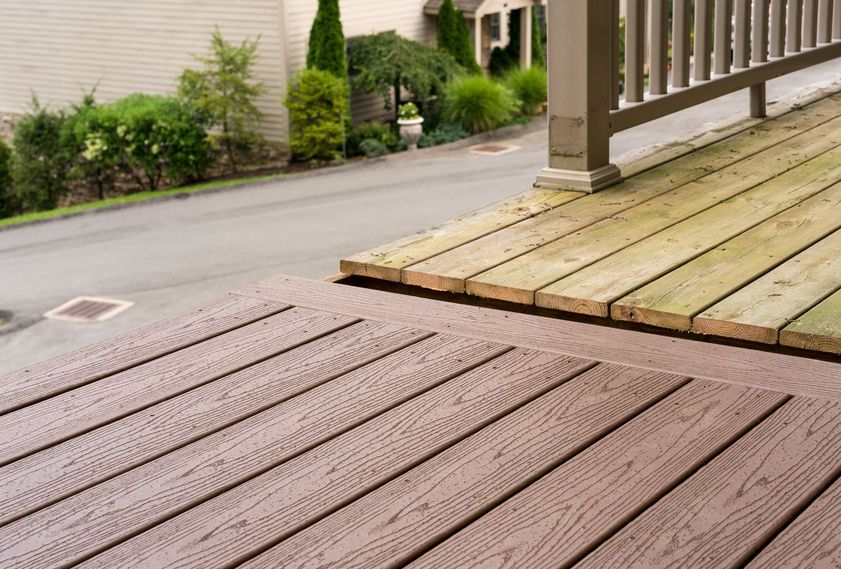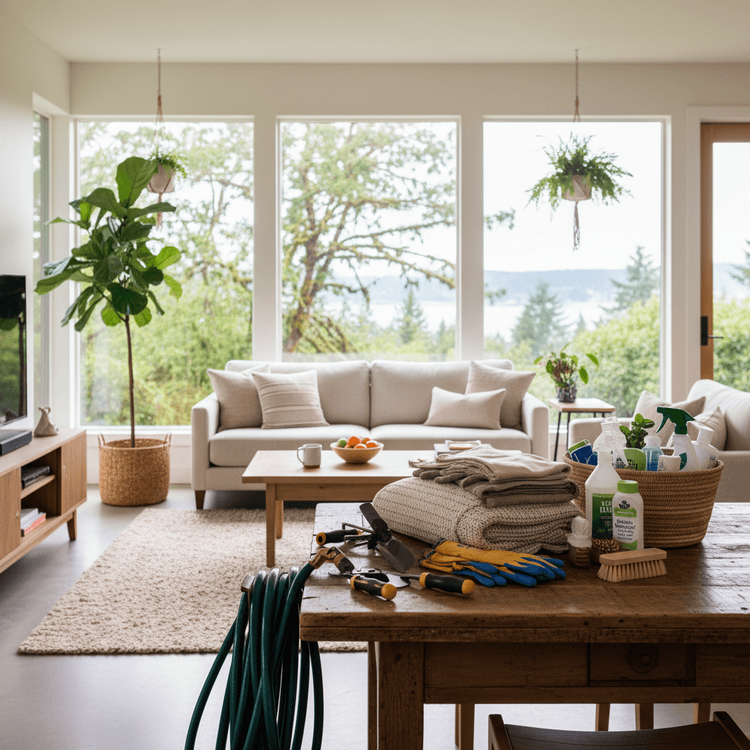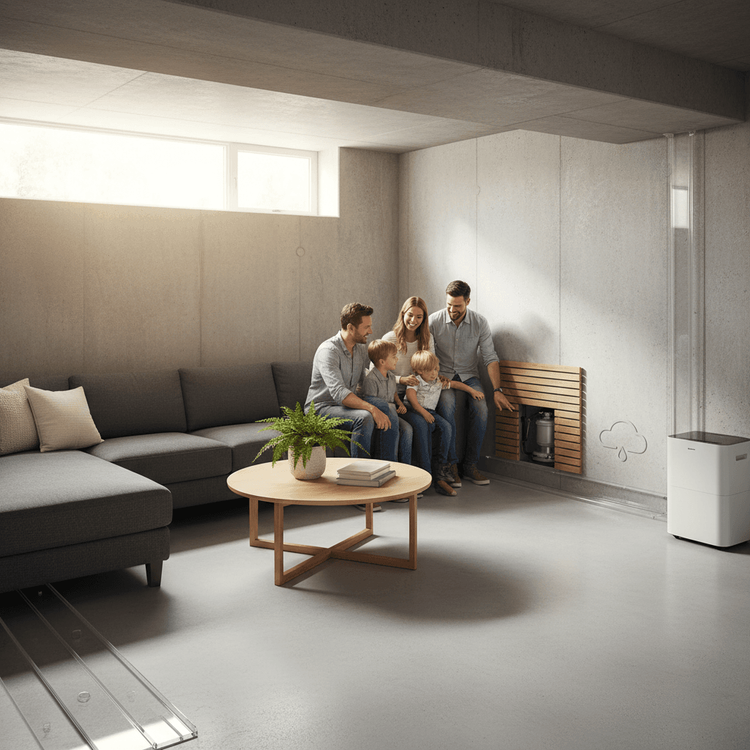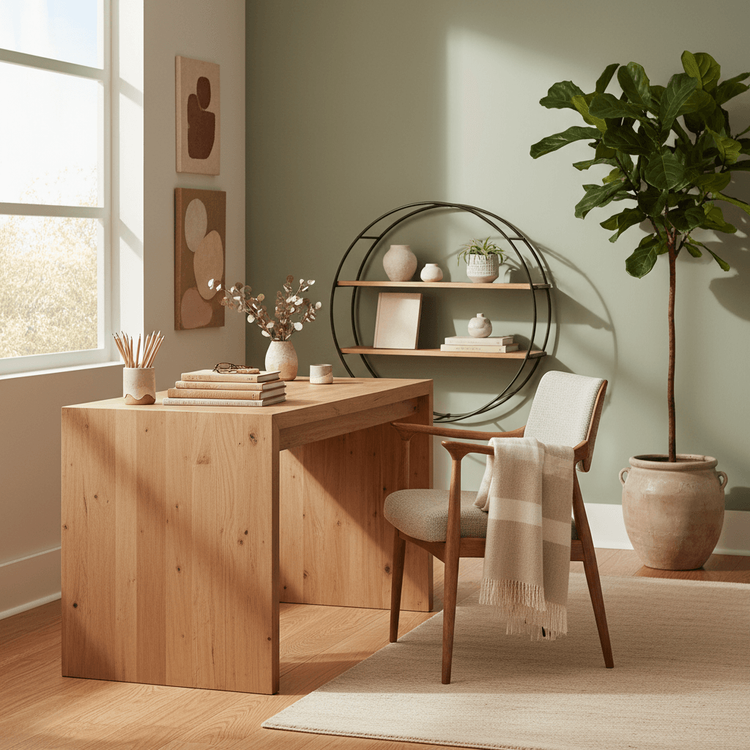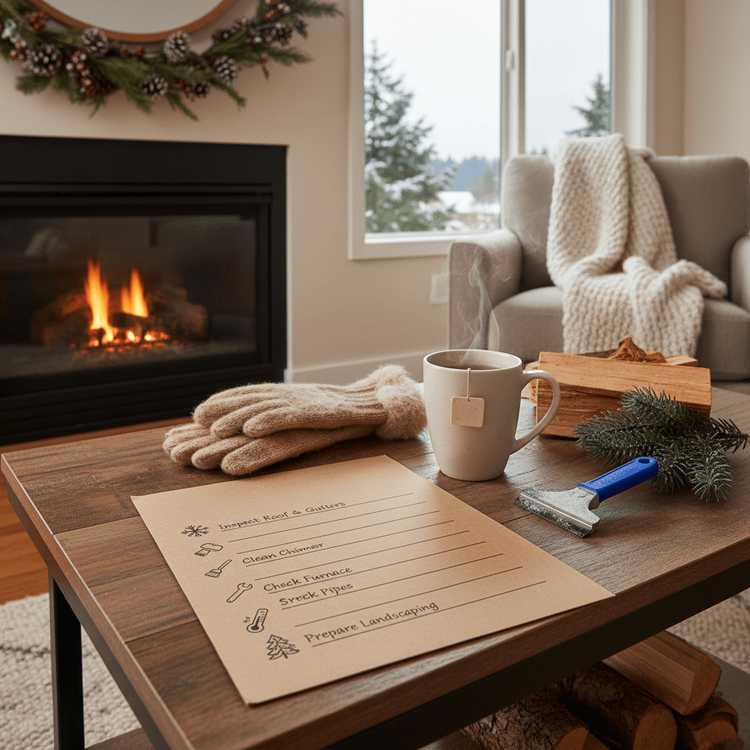Building a deck in the Pacific Northwest requires careful material selection. While regions with dry, sunny climates can use almost any decking material successfully, our frequent rain, high humidity, and moss-prone environment demands materials that can withstand constant moisture exposure without warping, rotting, or becoming hazardous.
Understanding how different deck materials perform in Pacific Northwest conditions helps you make an informed decision that balances upfront cost, maintenance requirements, and long-term durability. The right material choice means decades of enjoyment rather than constant repairs and premature replacement.
Why Pacific Northwest Weather Challenges Deck Materials
Our climate creates unique challenges for outdoor structures that don't exist in drier regions.
Constant Moisture Exposure: The Pacific Northwest receives 35-50 inches of rainfall annually, with many areas experiencing drizzle or rain 150+ days per year. Decks rarely have a chance to fully dry out, especially those in shaded areas under tree cover.
High Humidity: Even during dry periods, humidity levels remain elevated. This persistent moisture in the air penetrates wood fibers and creates ideal conditions for mold, mildew, and rot.
Moss and Algae Growth: Shaded, damp conditions cause moss and algae to colonize deck surfaces. Beyond being slippery and dangerous, these organisms retain moisture against the deck material, accelerating deterioration.
Limited UV Exposure: While our overcast climate protects materials from UV damage, it also means decks stay damp longer. Materials that dry quickly in sunny climates remain wet for extended periods here.
Temperature Fluctuations: Seasonal temperature changes cause materials to expand and contract. Combined with moisture, this cycle stresses fasteners, causes warping, and opens gaps where water infiltrates.
Evaluating Deck Materials for Pacific Northwest Conditions
Different materials respond to our climate in distinct ways.
Composite Decking
Engineered from wood fibers and plastic, composite decking has become increasingly popular in the Pacific Northwest for good reason.
Performance in PNW Climate:
- Highly resistant to moisture absorption
- Won't rot, warp, or splinter even with constant rain exposure
- Resists mold and mildew growth better than natural wood
- Minimal expansion/contraction with temperature changes
- Color remains stable without fading or graying
Maintenance Requirements:
- Occasional washing to remove debris and prevent mildew buildup
- No staining, sealing, or painting required
- Simple soap and water cleaning 2-3 times per year
- Annual inspection of fasteners and structure
Longevity: 25-30+ years with minimal maintenance
Considerations:
- Higher upfront cost ($35-$55 per square foot installed)
- Can retain heat in direct sun (less concern in PNW)
- Quality varies significantly between brands
- Scratches may be more visible than on natural wood
Best For: Homeowners prioritizing low maintenance and long-term value
Cedar Decking
Western Red Cedar is native to the Pacific Northwest and naturally adapted to our climate.
Performance in PNW Climate:
- Natural oils provide decay and insect resistance
- Dimensionally stable with minimal warping
- Beautiful grain and warm color
- Soft, comfortable underfoot
- Natural resistance to moisture damage
Maintenance Requirements:
- Annual cleaning and inspection
- Staining or sealing every 1-2 years to maintain appearance
- Without treatment, weathers to silver-gray (which some homeowners prefer)
- Regular maintenance prevents moisture infiltration
Longevity: 20-25 years with proper maintenance; 10-15 years with minimal maintenance
Considerations:
- Moderate cost ($25-$40 per square foot installed)
- Requires ongoing maintenance commitment
- Can develop surface checking (small cracks) over time
- Natural color fades without regular treatment
- Softer wood may dent from heavy furniture
Best For: Homeowners who appreciate natural wood appearance and don't mind regular maintenance
Pressure-Treated Wood
Standard pressure-treated lumber treated with preservatives to resist rot and insects.
Performance in PNW Climate:
- Chemical treatment prevents rot in wet conditions
- Widely available and affordable
- Proven track record in wet climates
- Strong and durable structural material
Maintenance Requirements:
- Initial 6-month curing period before staining/sealing
- Annual cleaning
- Staining or sealing every 2-3 years
- Regular inspection for loose boards or fasteners
- May develop surface mold requiring cleaning
Longevity: 15-20 years with proper maintenance
Considerations:
- Most budget-friendly option ($15-$25 per square foot installed)
- Can warp, twist, or cup as it ages
- Prone to splintering without regular maintenance
- Green or brown tint when new
- Requires chemical treatment (though modern treatments are safer than older formulations)
Best For: Budget-conscious homeowners willing to perform regular maintenance
PVC (Vinyl) Decking
100% synthetic material with no wood content.
Performance in PNW Climate:
- Completely waterproof and impervious to moisture
- Excellent mold and mildew resistance
- Won't rot, warp, or splinter under any conditions
- Stable in all weather conditions
- Easy to clean with minimal effort
Maintenance Requirements:
- Occasional washing with soap and water
- No staining, sealing, or painting ever required
- Lowest maintenance of all options
Longevity: 30+ years with virtually no maintenance
Considerations:
- High upfront cost ($40-$60 per square foot installed)
- Less natural appearance than wood or composite
- Can expand/contract more than composite in temperature extremes
- Limited color options compared to composite
- Scratches may be more visible
Best For: Homeowners seeking absolute minimum maintenance and maximum moisture resistance
Ipe and Other Hardwoods
Dense tropical hardwoods like Ipe, Cumaru, or Tigerwood.
Performance in PNW Climate:
- Extremely dense wood naturally resists rot and insects
- Minimal moisture absorption
- Exceptional durability even in wet conditions
- Beautiful, rich appearance
- Very stable with minimal movement
Maintenance Requirements:
- Annual cleaning
- Periodic oiling to maintain color (optional—will gray naturally without)
- Relatively low maintenance for natural wood
- Fasteners require regular inspection (wood is extremely hard)
Longevity: 40-50+ years with minimal maintenance
Considerations:
- Premium cost ($50-$80 per square foot installed)
- Requires specialized tools for cutting and drilling
- Pre-drilling required for all fasteners
- Limited availability from sustainable sources
- Very hard surface (less comfortable for bare feet than softer woods)
Best For: Homeowners seeking premium appearance and maximum longevity, with budget to match
Making the Right Choice for Your Project
Consider These Factors:
Budget:
- Immediate: Pressure-treated wood
- Long-term value: Composite (lower lifetime cost due to minimal maintenance)
- Premium: Ipe or PVC
Maintenance Tolerance:
- Minimal maintenance: PVC or composite
- Moderate maintenance: Cedar
- Higher maintenance acceptable: Pressure-treated wood
Aesthetic Preferences:
- Natural wood look: Cedar or Ipe
- Variety of colors: Composite
- Traditional: Pressure-treated wood
Environmental Exposure:
- Heavy shade/moisture: Composite or PVC
- Partial sun: Cedar or composite
- Full sun (rare in PNW): Any material works well
Lifespan Priority:
- Maximum longevity: Ipe or PVC
- Good longevity: Composite
- Adequate lifespan: Pressure-treated or cedar
Professional Installation Considerations
Even the best materials fail without proper installation. Pacific Northwest deck construction requires:
- Proper slope for water drainage
- Adequate spacing between boards for airflow and drainage
- Correct fastener types for wet climate conditions
- Appropriate joist spacing for material type
- Proper flashing and ledger board attachment
- Building code compliance for structural safety
Poor installation negates the benefits of premium materials, while professional installation maximizes the performance of any material choice.
Conclusion
Selecting deck materials for Pacific Northwest conditions requires balancing moisture resistance, maintenance requirements, budget, and aesthetic preferences. While pressure-treated wood offers affordability and cedar provides natural beauty, composite and PVC materials deliver superior performance with minimal maintenance in our wet climate. For premium durability, tropical hardwoods like Ipe provide decades of service.
The best material for your project depends on your specific needs, but all options can succeed in Pacific Northwest conditions with proper installation and appropriate maintenance. Understanding each material's strengths and limitations helps you make an informed decision that provides years of outdoor enjoyment.
For homeowners throughout the Seattle area—including Bellevue, Redmond, Sammamish, Issaquah, Renton, Maple Valley, Federal Way, and Auburn—professional deck building services ensure your deck performs optimally in Pacific Northwest weather. Stanis LLC Handyman & General Contractor provides expert deck design, construction, and repair services using materials suited to our climate. Contact us at contact@handymanst.com for professional deck consultation and construction.

